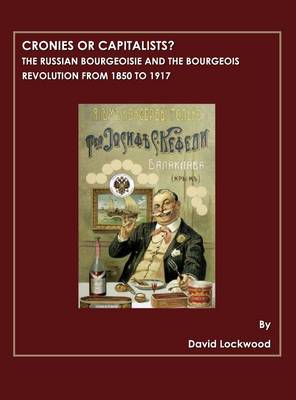Why wasn't there a successful bourgeois revolution in Russia? Was it because Russian capitalists were too servile in their relationship with the Tsarist autocracy? Or was it because Russian states (Tsarist, republican and Soviet) were just too strong?This book is a political history of the Russian capitalist class from 1850 to 1917 that seeks to answer these questions.The book covers the consistent opposition of the Russian bourgeoisie to the Tsarist autocracy up to and including the revolution of 1905. It then considers its alliance, from 1909, with 'new state' elements - officials, politicians, army officers and technical experts who were convinced of the possibility of reform and renovation through a radically reorganised state, cleansed of its autocratic detritus. Such a reorganisation was expected as a result of the Great War. While these ideas came to a temporary fruition in the February Revolution of 1917, they also laid the basis for a much more demanding Soviet state in October - and the destruction of the bourgeoisie itself. The book ends with a consideration of the wider implications for the concept of the bourgeois revolution-implications that stretch well beyond Russia-that are revealed by the rise and fall of the Russian bourgeoisie.
- ISBN13 9781443805629
- Publish Date 23 April 2009 (first published 1 January 2009)
- Publish Status Active
- Publish Country GB
- Imprint Cambridge Scholars Publishing
- Edition Unabridged edition
- Format Hardcover
- Pages 265
- Language English
